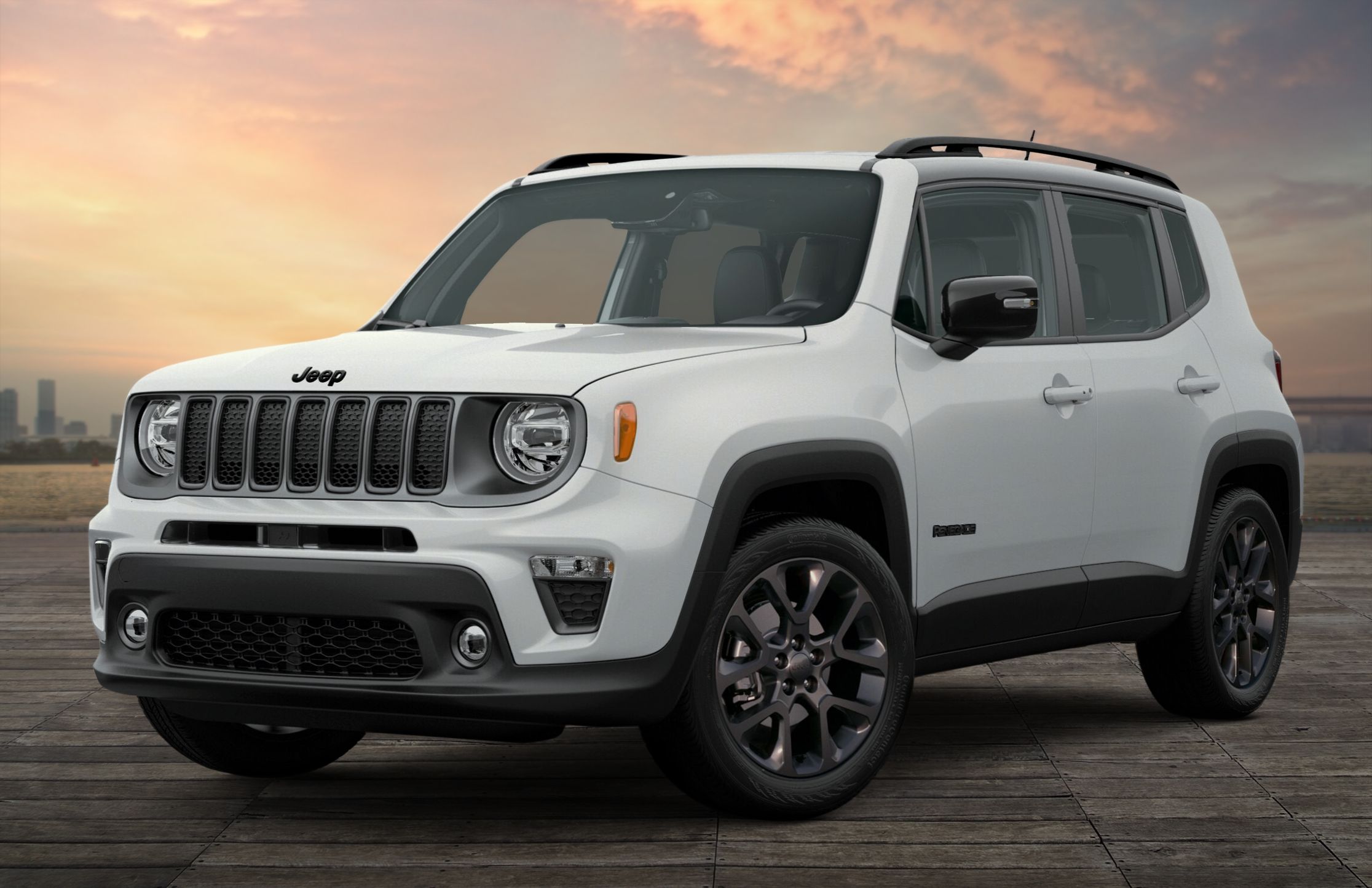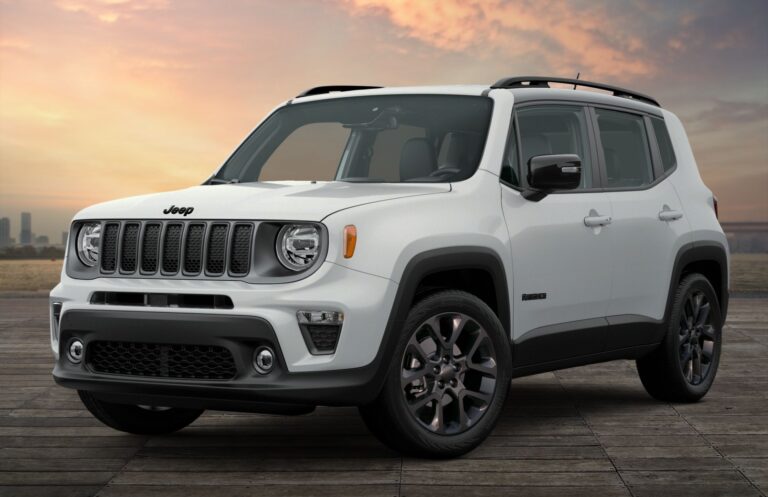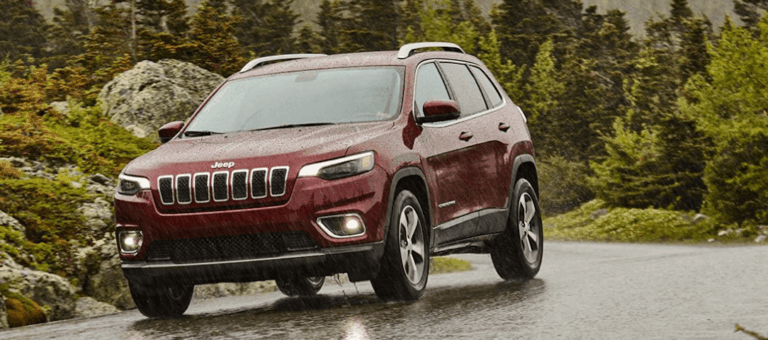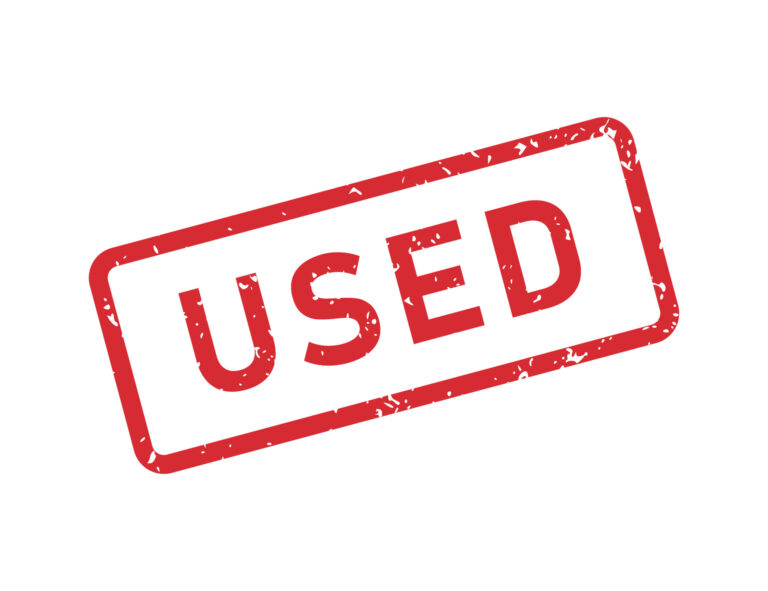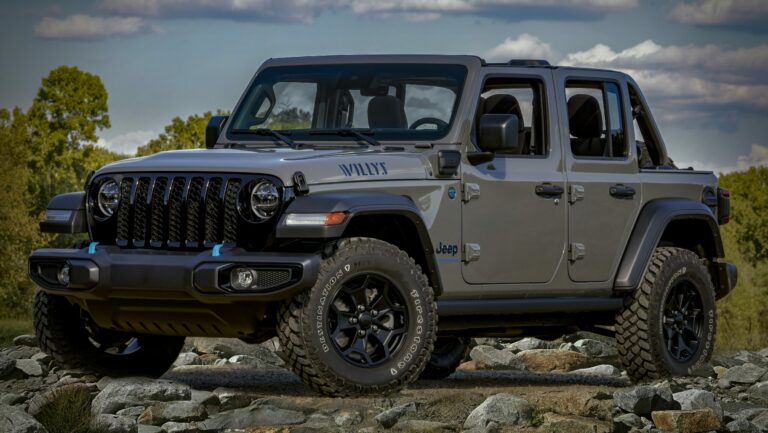Jeep JK Diesel For Sale: Unlocking Torque, Economy, and Off-Road Prowess
Jeep JK Diesel For Sale: Unlocking Torque, Economy, and Off-Road Prowess jeeps.truckstrend.com
The Jeep Wrangler JK, produced from 2007 to 2018, is already a legend in the off-road community. Known for its rugged capability, iconic design, and aftermarket versatility, it’s a popular choice for enthusiasts worldwide. However, for many in North America, the factory gasoline engines (the 3.8L V6 and later the 3.6L Pentastar) often left something to be desired, particularly in terms of low-end torque and fuel economy. This is where the allure of the Jeep JK Diesel For Sale comes into play – a niche but highly sought-after segment of the market that offers a compelling alternative for those seeking enhanced performance and efficiency.
A Jeep JK Diesel, whether a rare factory import or a meticulously executed engine swap, represents a significant upgrade for serious off-roaders, overlanders, and even daily drivers looking for a unique and capable vehicle. These diesel-powered Wranglers deliver a surge of torque that transforms the driving experience, especially when crawling over obstacles, towing gear, or navigating long distances. This comprehensive guide will delve into everything you need to know about finding, evaluating, and owning a diesel JK.
Jeep JK Diesel For Sale: Unlocking Torque, Economy, and Off-Road Prowess
The Allure of the Diesel JK
Why would someone go through the trouble or expense of seeking out a diesel-powered JK, especially when factory gasoline options are plentiful? The reasons are compelling:
- Unrivaled Torque: Diesel engines are renowned for their prodigious low-end torque. This is a game-changer for off-roading, providing immense power for climbing steep inclines, navigating challenging terrain, and pulling through mud or sand without needing to rev high. It also significantly improves towing capacity and stability.
- Superior Fuel Economy: Compared to their gasoline counterparts, diesel engines typically offer substantially better fuel efficiency. While diesel fuel itself can sometimes be more expensive, the increased miles per gallon often translates to lower overall running costs, especially on long trips or when used for daily commuting.
- Enhanced Durability and Longevity: Diesel engines are generally built to more robust standards, designed to withstand higher compression ratios and operate for hundreds of thousands of miles with proper maintenance. This inherent durability can be a significant advantage for a vehicle often subjected to demanding conditions.
- Overlanding Capability: For the overlanding community, the combination of torque, fuel economy, and range makes the diesel JK an ideal platform for extended expeditions into remote areas where fuel stops might be scarce.
- Unique Factor: In markets like North America where factory diesel JKs were not widely available, a well-executed diesel conversion stands out. It offers a unique blend of classic Jeep capability with modern diesel performance, making it a conversation starter and a highly capable machine.

Types of Diesel JK Conversions/Imports
When searching for a "Jeep JK Diesel For Sale," you’ll primarily encounter two categories:
1. Factory Diesel Imports (CRD – Common Rail Diesel)
While not officially sold in North America, Jeep did offer the JK with diesel engines in other markets, notably Europe, Australia, and parts of Asia. These models often came equipped with the VM Motori 2.8L CRD (Common Rail Diesel) engine.

- Characteristics: These are factory-engineered solutions, meaning the engine, transmission, and electronics are designed to work seamlessly together. They typically meet the emissions standards of their original sales region.
- Pros: Factory reliability, integrated systems, often easier to maintain as parts are standard for those regions.
- Cons: Rarity in non-native markets (like the US), potential challenges with importing and registering (especially in stricter states), and parts availability might be an issue outside of their original market.

2. Aftermarket Engine Swaps
This is the more common scenario for diesel JKs in North America. Enthusiasts and specialized shops swap out the factory gasoline engine for a diesel unit. The quality and complexity of these swaps can vary wildly.
-
Popular Engine Choices:
- Cummins R2.8 Turbo Diesel: A popular choice due to its compact size, robust nature, and good power-to-weight ratio. Cummins also offers good support for this crate engine.
- Mercedes-Benz OM617/OM606: Older, mechanically robust Mercedes diesels are sometimes swapped, known for their reliability but requiring more custom fabrication.
- 4BT Cummins: A larger, heavier, and louder industrial engine, often found in delivery vans. While incredibly durable and torquey, its size and vibration characteristics make it a less common choice for the JK compared to the R2.8.
- Volkswagen TDI Engines: Less common for JK swaps due to lower power output compared to other options, but sometimes used for extreme fuel economy builds.
- GM Duramax (smaller versions) or similar: Less frequent due to size and weight, but some extreme builds might feature these.
-
Complexity: Engine swaps are complex undertakings involving adapting the new engine to the JK’s transmission, wiring in new electronics (or managing existing ones), modifying the cooling system, fabricating motor mounts, and routing exhaust. The quality of these modifications is paramount.
What to Look For When Buying a Diesel JK
Purchasing a diesel JK, especially a swapped one, requires meticulous inspection and research. This isn’t your average used car purchase.
-
Engine Type & Condition:
- Identify the specific diesel engine. Research its common issues, maintenance schedule, and parts availability.
- Request maintenance records. Look for regular oil changes, filter replacements (fuel and air), and any significant repairs.
- Perform a cold start. Listen for unusual noises, excessive smoke (some light smoke on cold start is normal, but thick blue/black smoke is a red flag).
- Check for leaks. Oil, fuel, coolant.
- Inspect the turbocharger. Look for shaft play or oil leaks.
-
Conversion Quality (for Swapped Vehicles):
- Wiring: Is it neat, properly routed, and protected? Are connections soldered and heat-shrinked, or just taped? Poor wiring is a common source of headaches.
- Mounts: Are the engine and transmission mounts professionally fabricated and robust? Look for cracking or excessive vibration.
- Cooling System: Is the radiator adequately sized for the diesel engine? Are hoses properly routed and secure? Is there an intercooler (essential for turbo diesels)?
- Fuel System: Inspect fuel lines, pump, and filtration. Diesel engines are sensitive to fuel quality.
- Exhaust System: Check for proper routing, hangers, and any leaks.
-
Transmission Compatibility:
- Ensure the transmission (whether manual or automatic) is properly mated to the diesel engine via a high-quality adapter plate (if applicable).
- Test shifting for smoothness and responsiveness. The increased torque of a diesel can strain an undersized transmission.
-
Drivetrain Integrity:
- The JK’s axles and transfer case were designed for the factory gasoline engines. While generally robust, a high-torque diesel can expose weaknesses, especially if larger tires or aggressive driving are involved. Check for signs of stress or wear.
-
Legal & Emissions Compliance: This is CRITICAL.
- Emissions Laws: Diesel engine swaps can be a nightmare in states with strict emissions testing (e.g., California, parts of the Northeast). Research your local laws before you buy. Some swaps may never be legally registered in certain areas.
- Title and Registration: Ensure the vehicle’s title accurately reflects the engine change, if required by your state. Verify the VIN and engine serial numbers match documentation.
- SMOG/Inspection: Ask the seller if the vehicle has passed recent inspections in your area.
-
Rust & Overall Vehicle Condition: Beyond the diesel aspects, perform a standard used car inspection: check for frame rust, body damage, suspension wear, tire condition, and interior wear.
-
Test Drive: Drive it both on-road and, if possible, off-road. Listen for unusual noises, check power delivery, braking, and steering. Pay attention to how the new engine feels integrated into the vehicle.
Where to Find a Diesel JK For Sale
Finding a well-built diesel JK can be challenging due to their specialized nature.
- Specialized Forums & Groups: Online communities like JK-Forum.com, Expedition Portal, and various Facebook groups dedicated to Jeep JK diesel swaps are excellent resources. Sellers often post their vehicles here first.
- Online Marketplaces: Craigslist, eBay Motors, and Facebook Marketplace are common places, but require careful filtering and due diligence.
- Dedicated Off-Road/4×4 Dealerships: Some specialized dealerships might occasionally have a diesel JK, particularly those that focus on custom builds or high-end used 4x4s.
- Word of Mouth: Networking within the off-road community can sometimes lead to private sales.
- Specialized Builders: If you’re willing to pay for a professional build, some shops specialize in diesel JK conversions and may have vehicles for sale or can build one to order.
Cost Considerations and Value
A diesel JK typically commands a premium over a comparable gasoline model.
- Initial Purchase Price: Expect to pay significantly more than a stock JK. A high-quality, professionally executed diesel swap can add $15,000 to $30,000+ to the vehicle’s value, depending on the engine and supporting modifications. Factory imports are rare and their price varies widely based on condition and import costs.
- Maintenance Costs: While diesels are durable, parts can sometimes be more expensive or harder to find for less common engines. Specialized mechanics for diesel swaps might charge higher labor rates.
- Fuel Costs: While more fuel-efficient, diesel fuel prices fluctuate and can sometimes be higher than gasoline.
- Resale Value: A well-documented, legally compliant, and professionally built diesel JK can hold its value well within its niche market. However, the market for such vehicles is smaller, so it might take longer to sell. Poorly executed or illegal swaps will have little to no resale value and can be a financial liability.
Potential Challenges and Solutions
-
Emissions and Legality:
- Challenge: The biggest hurdle for many. Some states have extremely strict laws regarding engine swaps and emissions testing, making it impossible to register certain diesel JKs.
- Solution: Thoroughly research your local Department of Motor Vehicles (DMV) and environmental protection agency regulations before even looking at vehicles. If you live in a strict state, your options might be limited to factory imports that meet specific criteria, or you may need to reconsider.
-
Parts Availability:
- Challenge: If the swapped engine is obscure or discontinued, finding replacement parts can be difficult and costly.
- Solution: Prioritize vehicles with well-supported diesel engines (e.g., Cummins R2.8). Research parts commonality and availability before buying. Build a small stock of common wear items if possible.
-
Finding Qualified Mechanics:
- Challenge: Not all mechanics are familiar with diesel engines, let alone custom diesel swaps.
- Solution: Seek out specialized diesel shops or off-road performance shops that have experience with engine conversions. Learn basic DIY maintenance to handle minor issues yourself.
-
Insurance:
- Challenge: Some insurance companies may be hesitant to cover heavily modified vehicles or may charge higher premiums.
- Solution: Be upfront with your insurance provider about the engine swap. Shop around for companies that are more accommodating to modified vehicles.
Practical Advice and Actionable Insights
- Do Your Homework: Research specific diesel engines (Cummins R2.8, VM Motori 2.8L, etc.) that might be in a JK you’re considering. Understand their pros, cons, and typical maintenance.
- Get a Pre-Purchase Inspection (PPI): This is non-negotiable for a diesel JK, especially a swapped one. Have a reputable diesel mechanic or a specialist in engine conversions inspect the vehicle thoroughly.
- Verify Documentation: Ensure the title is clear, and any paperwork related to the engine swap (receipts, build sheets, dyno results) is available. This is crucial for legality and future resale.
- Budget for the Unexpected: Even the best conversions can have quirks. Set aside funds for potential post-purchase maintenance, minor tweaks, or unforeseen issues.
- Join Owner Forums: Connect with other diesel JK owners. They are an invaluable source of information, troubleshooting tips, and advice.
Estimated Price Table for Jeep JK Diesel For Sale
Please note: Prices for diesel JK conversions vary wildly based on the quality of the build, the specific engine, mileage, condition of the donor JK, and geographical location. This table provides estimated ranges for well-executed conversions or rare imports in good condition.
| Engine Type/Category | JK Year Range | Condition/Quality | Estimated Price Range (USD) | Notes/Factors |
|---|---|---|---|---|
| Factory VM Motori 2.8L CRD | 2007-2018 | Good to Excellent | $25,000 – $45,000+ | Rare in North America. Price heavily depends on import costs, mileage, and condition. Factory reliability but parts can be harder to source. Often higher mileage. |
| Cummins R2.8 Swap | 2007-2018 | Professional Build | $35,000 – $60,000+ | Most popular and well-supported swap. Price reflects cost of engine ($9k-12k) plus professional installation, electronics, cooling, etc. Value depends heavily on shop reputation and documentation. |
| 4BT Cummins Swap | 2007-2018 | Well-Done Custom | $30,000 – $55,000 | Older, more industrial engine. Known for extreme torque and durability. Price varies based on donor engine condition, rebuild costs, and fabrication quality. Can be louder and vibrate more. |
| Mercedes OM617/OM606 Swap | 2007-2018 | Custom/Enthusiast | $25,000 – $45,000 | Less common, often done by DIYers or specialized shops. Prices depend on the donor engine (rebuilt vs. used) and the complexity of the custom work. Excellent reliability for well-maintained units. |
| "Budget" DIY Diesel Swap | 2007-2018 | Variable/DIY | $20,000 – $35,000 | These are often private sales where the owner performed the swap. Quality can range from excellent to problematic. Requires very thorough inspection by a specialist. Often cheaper upfront but may require more work. |
| Poorly Executed/Illegal Swap | 2007-2018 | Poor/Questionable | $10,000 – $20,000 | AVOID. These are often titled as gasoline vehicles, have emissions issues, or major mechanical flaws. Buying one is a significant financial risk and can lead to legal problems. |
Note: These are general estimates. Factors like mileage, additional aftermarket modifications (lift, tires, armor, etc.), vehicle history, and regional market demand will significantly influence the final sale price.
Frequently Asked Questions (FAQ) about Jeep JK Diesel For Sale
Q1: Is it legal to put a diesel engine in a Jeep JK in my state?
A1: This is the most critical question. Legality varies widely by state/country. States like California have extremely strict emissions laws that make most engine swaps illegal or very difficult to register. Other states are more lenient. Always check with your local DMV and environmental protection agency before purchasing.
Q2: What is the best diesel engine for a JK swap?
A2: The "best" depends on your priorities.
- Cummins R2.8: Generally considered the most balanced option for a JK – good power, compact, relatively quiet, and well-supported.
- 4BT Cummins: For maximum torque and durability, but heavier, louder, and vibrates more.
- VM Motori 2.8L CRD: If you can find a factory import, it offers seamless integration.
Q3: Are diesel JKs good for daily driving?
A3: Yes, a well-executed diesel JK can be an excellent daily driver, offering improved fuel economy and a relaxed driving experience thanks to the low-end torque. However, consider the potential for increased noise/vibration compared to a gasoline engine, especially with larger industrial diesels.
Q4: What kind of fuel economy can I expect from a diesel JK?
A4: Fuel economy varies significantly based on the specific engine, gearing, tire size, driving style, and vehicle weight.
- Cummins R2.8: Owners often report 20-28 MPG (US) in mixed driving.
- VM Motori 2.8L CRD: Similar to the R2.8, often in the 20-25 MPG range.
- 4BT Cummins: Typically 18-25 MPG, but can vary.
In general, expect a significant improvement over the factory gasoline engines (which often get 15-18 MPG).
Q5: Is maintenance more expensive for a diesel JK?
A5: Potentially. While diesels are durable, some parts can be more expensive than gasoline engine parts. Finding mechanics familiar with specific diesel engines or custom swaps can also be more challenging and thus more costly. Regular maintenance (oil, fuel filters) is crucial for diesel longevity.
Q6: Can I tow more with a diesel JK?
A6: Yes, absolutely. The primary advantage of a diesel engine is its high torque output at low RPMs, which is ideal for towing. While the JK’s frame and suspension still dictate overall towing capacity, the diesel engine provides significantly more capability and less strain when pulling trailers.
Conclusion
The pursuit of a Jeep JK Diesel For Sale is not for the faint of heart, but for the right buyer, it offers a truly compelling proposition. The enhanced torque, superior fuel economy, and inherent durability of a diesel engine transform the already capable JK Wrangler into an even more formidable machine, particularly for serious off-roading, overlanding, or heavy-duty use.
While the journey to acquire one involves careful research, meticulous inspection, and navigating potential legal complexities, the reward is a unique, powerful, and efficient Jeep that stands apart from the crowd. By understanding the types of conversions, knowing what to look for, and being prepared for the nuances of diesel ownership, you can confidently embark on the path to owning one of the most desirable and capable JK Wranglers on the road – or off it. The diesel JK is more than just a vehicle; it’s a statement of capability and efficiency, ready to conquer any trail with a satisfying growl.

